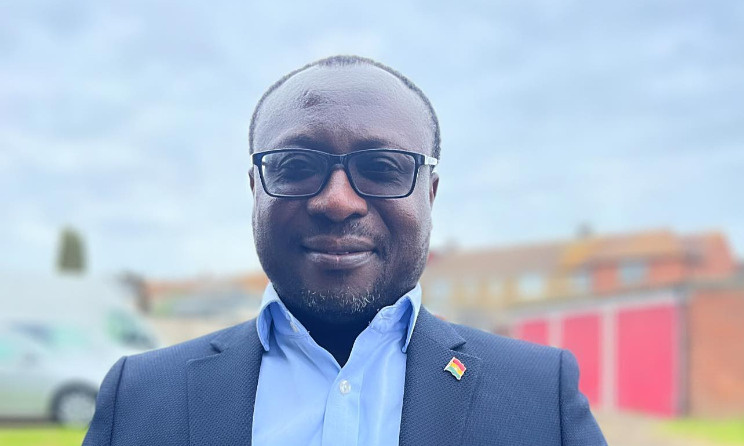Ghana’s music industry has blossomed over the years, producing a plethora of talented artists who have captivated audiences both locally and internationally.
However, behind the glitz and glamour lies a troubling reality: the often-unfair treatment of music producers by some of these top musicians.
This issue, characterized by copyright infringement and inadequate royalty distribution, poses a significant threat to the livelihoods of producers and the overall health of the music ecosystem.
As the industry evolves, it is crucial to address these concerns to foster a more equitable environment for all stakeholders involved.
UK-based Ghanaian talent manager and music publisher Mark Darlington Osae has raised concerns about how some top Ghanaian musicians are allegedly maltreating music producers, particularly regarding copyright and royalties.
In a Facebook post, the manager of Skrewfaze and Reggie & Bollie alleged that certain artists are selling their music catalogues while removing producer credits in the process.
“The way some of our big GH artists are treating producers is bad! Producers, please monitor the credits of ur songs on DSPs. There is a trend where your credits and/or split shares are being taken & songs sold or re-registered as 100% owners to 3rd parties!”
Mark Darlington Osae
To understand the gravity of the situation, one must first recognize the pivotal role that music producers play in creating a successful song.
They are responsible for shaping the sound of a track, guiding artists through the recording process, and often contributing their creative input. Their expertise and labor are essential in transforming an artist’s vision into a polished product.

Despite their significant contributions, many producers in Ghana find themselves marginalized, receiving little recognition and even less financial compensation for their work.
Mark explained that producers are entitled to more than just mechanical and publishing splits.
“When a producer works on a song with an artist, apart from the mechanical and the publishing splits that they agree on, they also have a share in master rights as well, unless the producers have sold and relinquished their rights to either the record label or the artist. If that has not happened, they have producer points on the master recording.”
Mark Darlington Osae
One of the primary issues facing music producers in Ghana is the rampant infringement of copyright. Many top musicians fail to properly credit producers for their work, often neglecting to obtain the necessary licenses for the use of beats or samples.
This not only undermines the producer’s rights but also sets a dangerous precedent within the industry. When artists disregard copyright laws, they not only exploit the hard work of producers but also contribute to a culture of disrespect for intellectual property.
For instance, there have been numerous cases where popular songs have been released without the producer’s consent or a fair agreement in place.
This practice not only affects the financial stability of producers but also diminishes the overall quality of music, as artists opt for subpar production to avoid proper compensation.
Need for Change for Producers

To address these pressing concerns, a cultural shift within the Ghanaian music industry is essential. Musicians must recognize the value of their collaborators and establish fair practices that honor the contributions of producers.
Artists should be educated about copyright laws and the importance of crediting producers. Workshops and seminars should be organized to foster a culture of respect for intellectual property.
Establishing clear and transparent contracts that outline the terms of collaboration, including compensation and royalty distribution, helps protect the rights of producers.
Industry stakeholders, including musicians, producers, and music associations, should advocate for fair treatment and equitable compensation for all contributors in the music-making process.
Utilizing digital platforms to track royalties and ensure fair distribution helps create a more equitable system.
The Ghanaian music industry stands at a crossroads. While it has the potential for unprecedented growth and international acclaim, the exploitation of music producers threatens to undermine this progress.
By addressing the concerns of copyright infringement and inadequate royalty distribution, musicians foster a more equitable environment that values collaboration and creativity.
As the industry evolves, all stakeholders must work together to ensure that the contributions of producers are recognized and compensated fairly, paving the way for a brighter future for Ghanaian music.


















